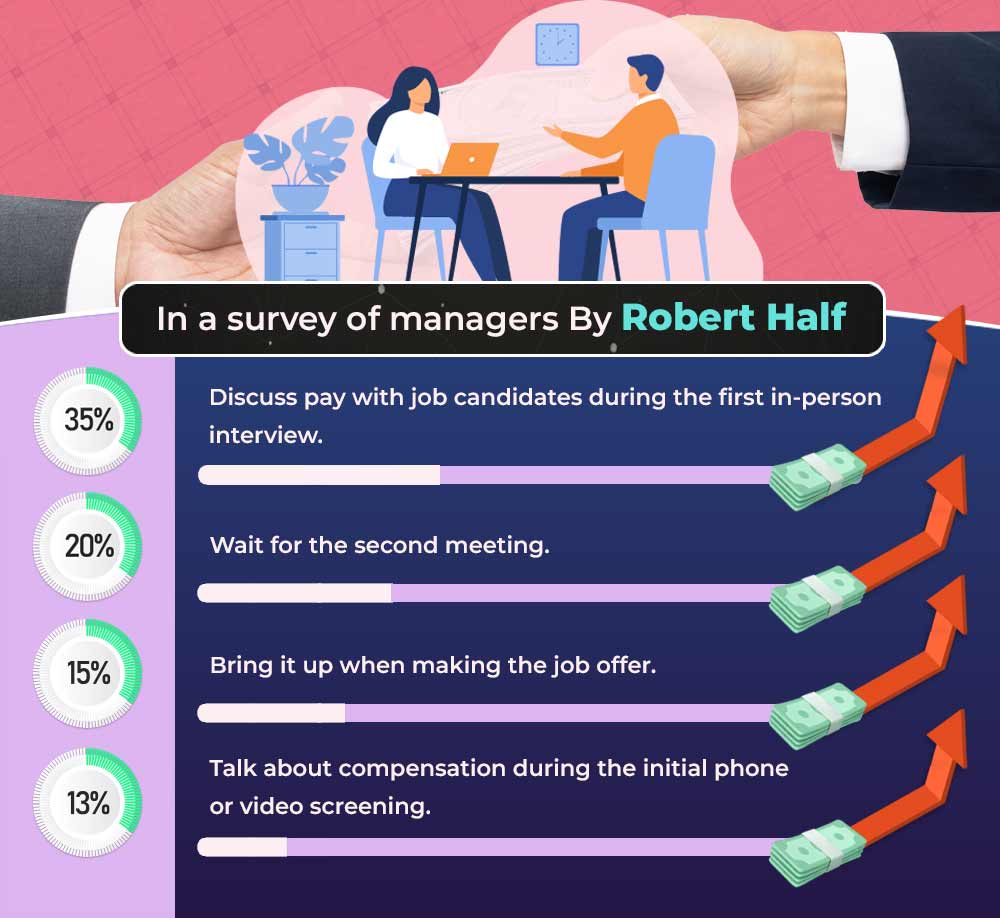Salary Talks 101: How to Negotiate Like a Pro, Even If You’re Shy
Are you about to jump into the job market or aiming for a promotion? Congratulations! It’s an exciting time, but it can also be nerve-wracking, especially regarding salary negotiation. If you tend to shy away from confrontation or find it difficult to advocate for yourself, fear not! You can still negotiate like a pro with a few simple strategies.
Let’s start with a relatable scenario:
Imagine you’ve just received a job offer for your dream position. The company seems like a perfect fit, the team is fantastic, and you can’t wait to get started. But when it comes to discussing salary, you freeze up. You’re afraid of asking for more and worry that you might jeopardize the offer altogether.


DOs and DON’Ts for negotiating your salary:
DOs:
- Do Your Research: Research industry standards and typical salary ranges for your position to understand your market value.
- Practice Negotiating: Rehearse your negotiation pitch with a friend, family member, or mentor to build confidence.


- Highlight Your Value: Emphasize your skills, experience, and achievements during the negotiation to demonstrate your worth to the company.
- Maintain a Positive Attitude: Approach the conversation with a friendly and collaborative demeanor to keep the discussion constructive.
- Be Prepared to Compromise: While advocating for your desired salary, be open to negotiation and willing to compromise on certain terms or benefits.
DON’Ts:
- Don’t Undervalue Yourself: Avoid selling yourself short or accepting a salary below your worth due to fear or lack of confidence.
- Don’t Rush the Process: Take your time to carefully consider the offer and prepare your negotiation strategy rather than rushing into the discussion unprepared.


- Avoid Being Overly Aggressive: While it’s essential to advocate for yourself, avoid being overly aggressive or confrontational during the negotiation, as it may sour the relationship with the employer.
- Don’t Focus Solely on Salary: While salary is important, don’t overlook other benefits such as healthcare, retirement plans, or professional development opportunities during negotiations.
- Don’t Burn Bridges: Regardless of the outcome, maintain professionalism and gratitude throughout the negotiation process to preserve relationships with the employer, even if the offer doesn’t meet your expectations.
Examples Of Salary Negotiation Pitches
- Emphasizing Your Value Pitch:
“I’m excited about the opportunity to join your team and contribute my [X years] of experience in [relevant field]. My track record includes [specific achievements or skills], which I believe will greatly benefit the company. Considering my qualifications and the value I can bring to the role, I was hoping we could discuss adjusting the salary to align more closely with industry standards.”
- Market Research Pitch:
“Based on my research of similar positions in the industry, the average salary range for this role is [provide a specific range]. Given my experience and qualifications, I believe a salary within this range would be fair and competitive. I’m enthusiastic about the opportunity to work with your team and am hopeful we can come to an agreement that reflects both my value and market standards.”
- Performance-Based Pitch:
“I’m grateful for the offer and enthusiastic about the opportunity to contribute to the team. Over the past [X months/years], I’ve consistently exceeded expectations and achieved [specific results or milestones]. I’m confident that my performance will continue to drive success for the company. With that in mind, I was hoping to discuss adjusting the salary to reflect better my contributions and the value I bring to the table.”
- Total Compensation Package Pitch:
“While I’m excited about the opportunity to join your company, I was hoping we could discuss the overall compensation package, including benefits such as [list specific benefits like healthcare, retirement plans, etc.]. These benefits are important to me for [reasons], and I believe they should be considered alongside the salary. I’m open to discussing how we can find a balance that meets both my needs and the company’s budget.”
- Future Growth Potential Pitch:
“I appreciate the offer and am eager to start making meaningful contributions to the team. As I continue to grow and develop in this role, I’m committed to driving value for the company. With that in mind, I was hoping we could discuss the potential for performance-based salary increases or advancement opportunities in the future. I believe this would align our interests and incentivize ongoing excellence.”
Remember to tailor your pitch to your specific situation and priorities, and always approach the negotiation with professionalism and confidence.
In conclusion, salary negotiation is an essential skill that can significantly impact your financial well-being and professional satisfaction. Remember, negotiation is not about being pushy or confrontational but about advocating for yourself respectfully and professionally. And while the process may feel daunting at first, with practice and preparation, you can navigate it successfully.
With the right approach, you can turn that job offer into a rewarding opportunity that not only meets your financial needs but also aligns with your career goals and aspirations.
Now, armed with this guide, go forth and negotiate like a pro. Your future self will thank you for it!







